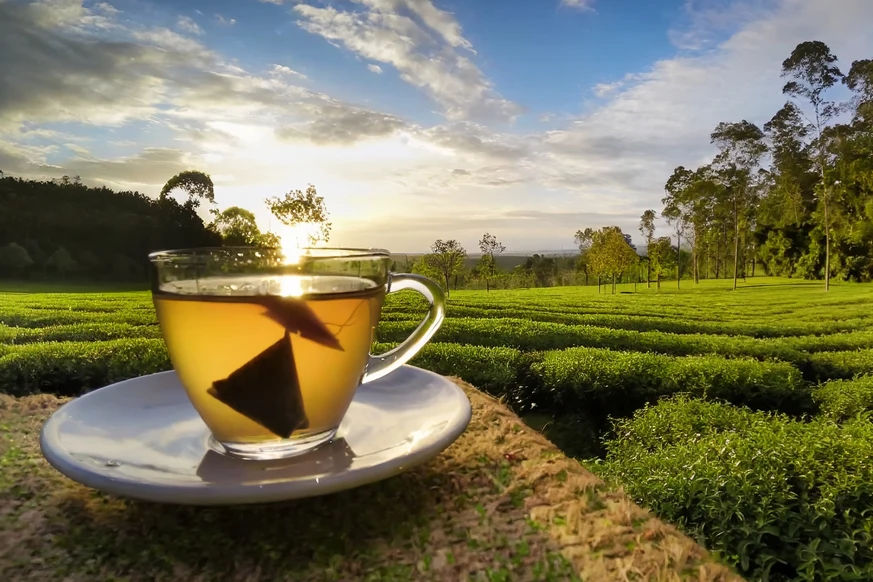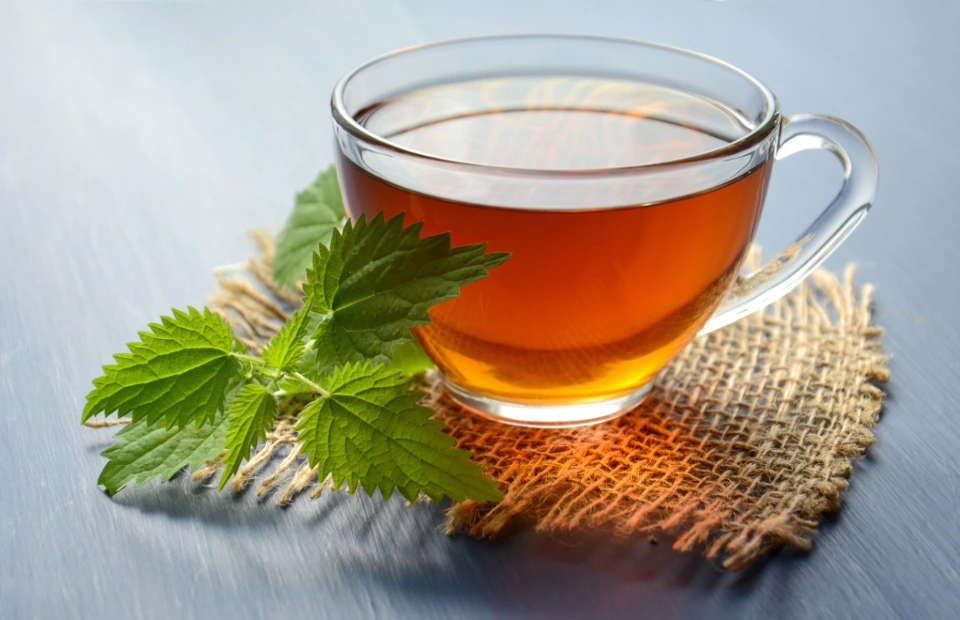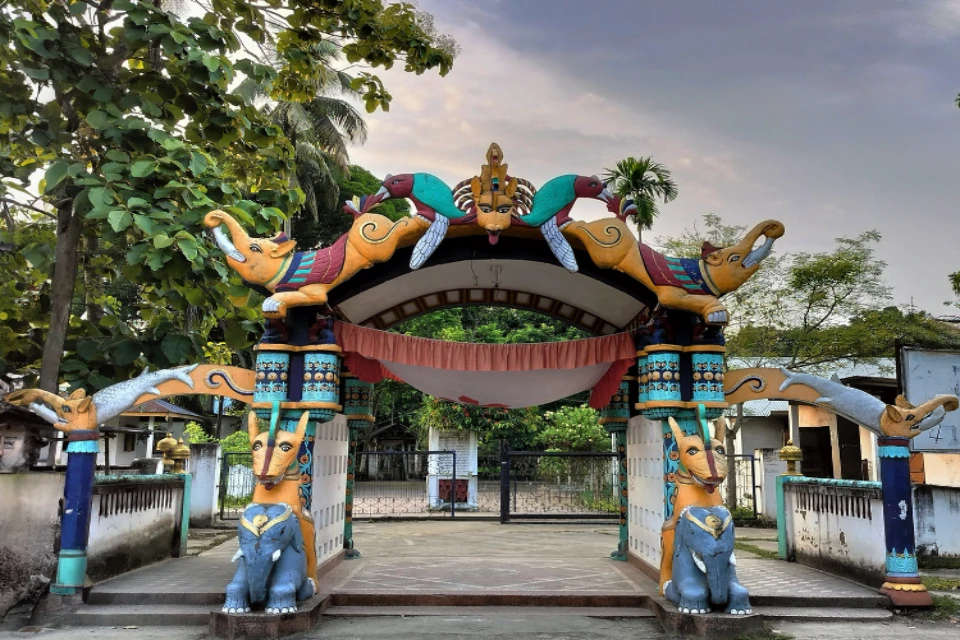What is Assam Tea? Discover 7 Unknown Facts
Explore now: What is Assam tea? Who discovered Assam tea? Assam tea benefits, nutrition, and caffeine level.

Updated on : January 7, 2026

Do you know that out of the 1.4 billion people in India, almost 79% of Indians prefer to drink tea on a regular basis? India is the second-largest tea producer in the world, and 51% of tea produced in India is from Assam.
But have you ever wondered how Assam has become a tea-rich state, who discovered tea in Assam, and how the taste of Assam tea has become globally popular?
As a tea lover, you must be familiar with the pleasant taste of Assam tea and be excited to explore more. Just embrace the journey and keep reading; you are in the right place.
Assam tea, a beverage steeped in rich history and distinct flavors. Growing on the green landscapes of Assam, the taste of Assam tea has captured the hearts of tea lovers around the globe.
In this blog, we will take you through various fascinating facts about Assam tea, including its discovery, taste and flavours, nutritional value, and benefits. Let’s take a deep dive into the aromatic realms of Assam tea.
What is Assam Tea?
Tea grown in the valleys of Assam is generally called Assam tea. Naturally, it’s a variety of black tea brewed from the leaf buds of Camellia sinensis var. assamica. The plant is indigenous to Assam, and its leaves are further processed to prepare different varieties of tea with different flavors.
Assam tea has a long and storied history. It was initially commoditized in the mid-19th century. Today, there are more than 2500 tea gardens in Assam, lying on both sides of the Brahmaputra and in the northern parts of Assam. Due to the unique characteristics of Assam tea, it is familiar to all tea lovers and is exported to more than 25 countries on all continents of the world.
Who discovered Assam Tea ?
Historians claim that Assam tea was unknowingly discovered by Singpho people, who used to live in modern-day Sadia, Tinsukia district of Assam. But we better know what is Assam tea: because of the Scottish trader and adventurer Robert Bruce.
The Singpho tribe used to drink a wild herbal drink. During an expedition, Robert Bruce was introduced to the Singpho tribe, and he was offered that herbal drink. He was an opium trader and used to trade opium to China. He was familiar with Camellia sinensis var. sinensis, which was already discovered in mainland China as the tea plant.
Later, Robert Bruce discovered that the leaves of the plant that Singpho people use to prepare herbal drinks have similarities with Camellia sinensis var. sinensis. Eventually, that plant was examined and found to be a different variety of Camellia sinensis, named Camellia sinensis var. assamica, which we today know as the Assam tea.
What does Assam Tea taste like ?
Assam tea tastes like just another cup of fresh tea in the morning, but because of its different brewing process and distinctive flavours, it is one of the most popular black teas globally.
Every sip of assam tea is strong, hearty, and provides a satisfying mouthfeel. One of the key distinguishing features of Assam tea is its malty sweetness. The tea leaves from where Assam tea is brewed contribute a natural sweetness. This sweetness sometimes adds slightly caramel undertones, adding depth to the overall flavour profile.
Assam tea is often enjoyed with milk and sugar. Its purity allows it to mix well with these additions, creating a comforting cup of tea. Also, assam tea serves as an ingredient in various blends, including masala chai, which is now an irreplaceable drink for almost all Indians.
Assam Tea vs Black Tea
Any type of tea we drink is prepared from the leaves of the plant Camellia sinensis. Based on the variations of the plant, origin, and fermentation process, the final product can be black tea, green tea, or red tea.
Black tea is a fermented product of tea leaves that has more antioxidants than other forms of tea.
Assam tea can be fermented to be black tea, green tea, or red tea. But mostly Assam tea is counted as black tea because the black tea brewed from Assam tea is the nearest form to its natural purity.
In simple words, we get black tea from Assam tea with minimal processing and fermentation. And the authenticity of Assam tea remains unchanged when it is brewed to be black tea. That’s why Assam tea is popular as black tea.
Nutritions in Assam Tea
Assam tea is rich in antioxidants like theaflavins, thearubigins, and catechins. Since Assam tea is traded globally, the fermentation processes of different brands are competitive. Based on the brewing process, nutritional benefits may differ.
Following is an average estimation of the nutritional contents of Assam black tea.
Nutritional contents of Assam black tea per 100 g
Calories: 29
Total fat: 0 g
Sodium: 5mg
Total Carbohydrate: 7.3g
Protein and amino acids: 0g
Potassium: 0g
Sugars: 7.29 g
Cholesterol: 0mg
Assam Tea caffeine
Black tea generally has more caffeine than green tea or oolong tea. Assam tea is mostly brewed to be black tea, so the caffeine in Assam tea is comparatively higher.
Typically, an 8-ounce cup of Assam tea has between 50 to 90 milligrammes of caffeine, which is comparable to a cup of coffee. Because of its distinct qualities, Assam black tea contains more caffeine than other tea varieties, like green or white tea.
Assam Tea benefits
Apart from its mouth feeling, smooth, and refreshing taste, Assam tea has several benefits. Assam tea is rich in antioxidants, which reduce stress levels.
Since Assam tea has a comparatively higher caffeine level, it can help to boost mental alertness, focus, and concentration.
However, excessive amounts of any natural element in the body may cause serious health issues. So, having rich natural elements in Assam tea does not necessarily mean that we should drink tea all the time without any precautions.
To better understand the benefits of Assam tea and precautionary measures, consider reading this article.



